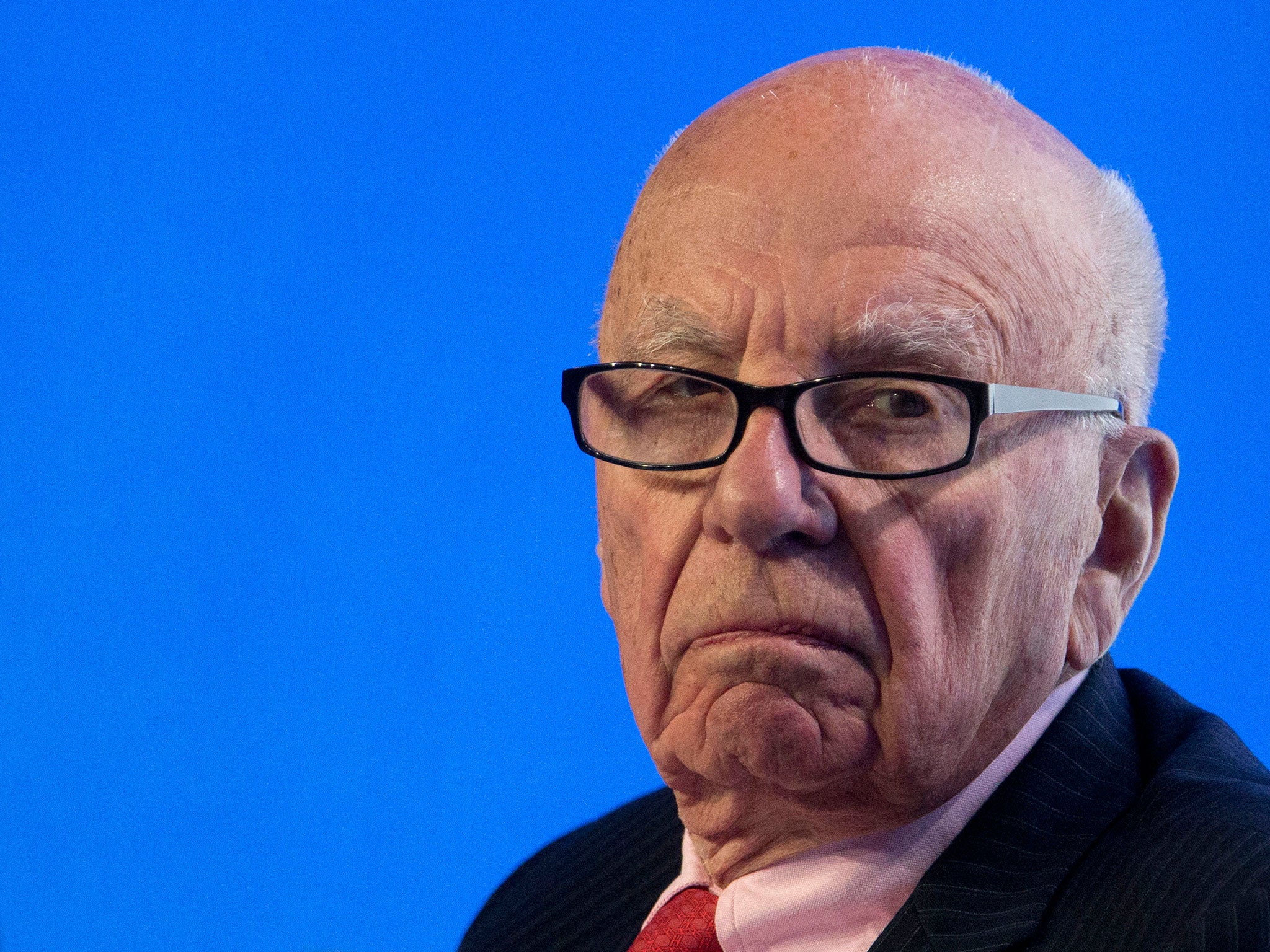Scottish independence: Rupert Murdoch could play kingmaker with 'Scottish Sun' leaning Yes

Rupert Murdoch’s Scottish Sun appears on the brink of declaring its support for the Yes campaign, delivering a PR coup for Scotland’s First Minister Alex Salmond, with whom he has a close rapport.
With Mr Murdoch tweeting furiously in favour of the man who once addressed him as “Sir Rupert”, there was an expectation in the Glasgow newsroom of Scotland’s biggest tabloid that the paper would declare for independence. Andrew Neil, an experienced reader of the Murdoch runes and one of his former editors at the Sunday Times, claimed: “He’s very close to putting the [Scottish] Sun behind Salmond and YES”.
As a naturalized American citizen, born in Melbourne, Mr Murdoch does not have a vote in the Scottish Referendum on 18 September. And yet – as he has made clear from a flurry of activity on his Twitter account – he could have a greater impact on the outcome of the historic election than almost any of those taking part.
“London Times will shock Britain and more with reliable new poll on Scottish independence. If right on 18th vote everything up for grabs,” was his breathless trail of the YouGov poll for his Sunday Times which suggested, for the first time, that the Yes campaign might be in the lead.
That could be regarded as the contribution of an instinctive newsman, ushering in a story that would dominate the news agenda for the next 24 hours. Beyond that, Mr Murdoch has ancestral interest in the referendum. His grandfather, Patrick John Murdoch, was a Presbyterian minister from Aberdeenshire who sailed to Australia in 1884 and, the next year, had a son, Keith Arthur Murdoch, founder of the world’s most famous media dynasty.
But in subsequent tweets, Mr Murdoch has given a clearer explanation of his interest. “Scottish independence means huge black eye for whole political establishment, especially Cameron and Milliband [sic],” he observed, revelling in the discomfort of the political leaders who inflicted the Leveson inquiry on his British newspaper stable.
Mr Murdoch today embarked on a broader attack on modern British society, citing the “six scandal n Rotherham [sic]” and UK Muslim connections to Islamic State as evidence of “reverse racism” and a lack of integration compared to America and Australia.
With the polls in Scotland now so close, the Scottish Sun could play kingmaker. It has a circulation of 246,066 (some five per cent of the total population) and is disproportionately popular with the key C2DE social demographic in the West of Scotland, where undecided but traditionally Labour-supporting voters could hold the balance of power.
“Once again the spectre of Rupert Murdoch hovers over us - he will be loving it,” said Michael Williams, a former executive on Murdoch’s Sunday Times and now a lecturer in journalism at the University of Central Lancashire. He recalled executive meetings with the establishment-hating media proprietor who would exclaim: “Whose breakfast can we spoil today?”
Throughout Mr Murdoch’s career, Williams said, he has had “this sense that he was not just a bean-counting media mogul but a journalist-proprietor and people should listen to his views”.
Last week Bill Leckie, an influential football journalist on the Scottish Sun, publicly switched from No to Yes and caused what he described as “Twitter overload”. One London-based News UK source said “Rupert will clearly be involved” in the Scottish Sun’s decision but in consultation with David Dinsmore, editor of The Sun, and Gordon Smart, editor of the Scottish Sun. Both editors are Scots. Mr Dinsmore is believed to be unsure about the Scottish paper coming off the fence – but the final word may not be his.
Join our commenting forum
Join thought-provoking conversations, follow other Independent readers and see their replies
Comments
Bookmark popover
Removed from bookmarks